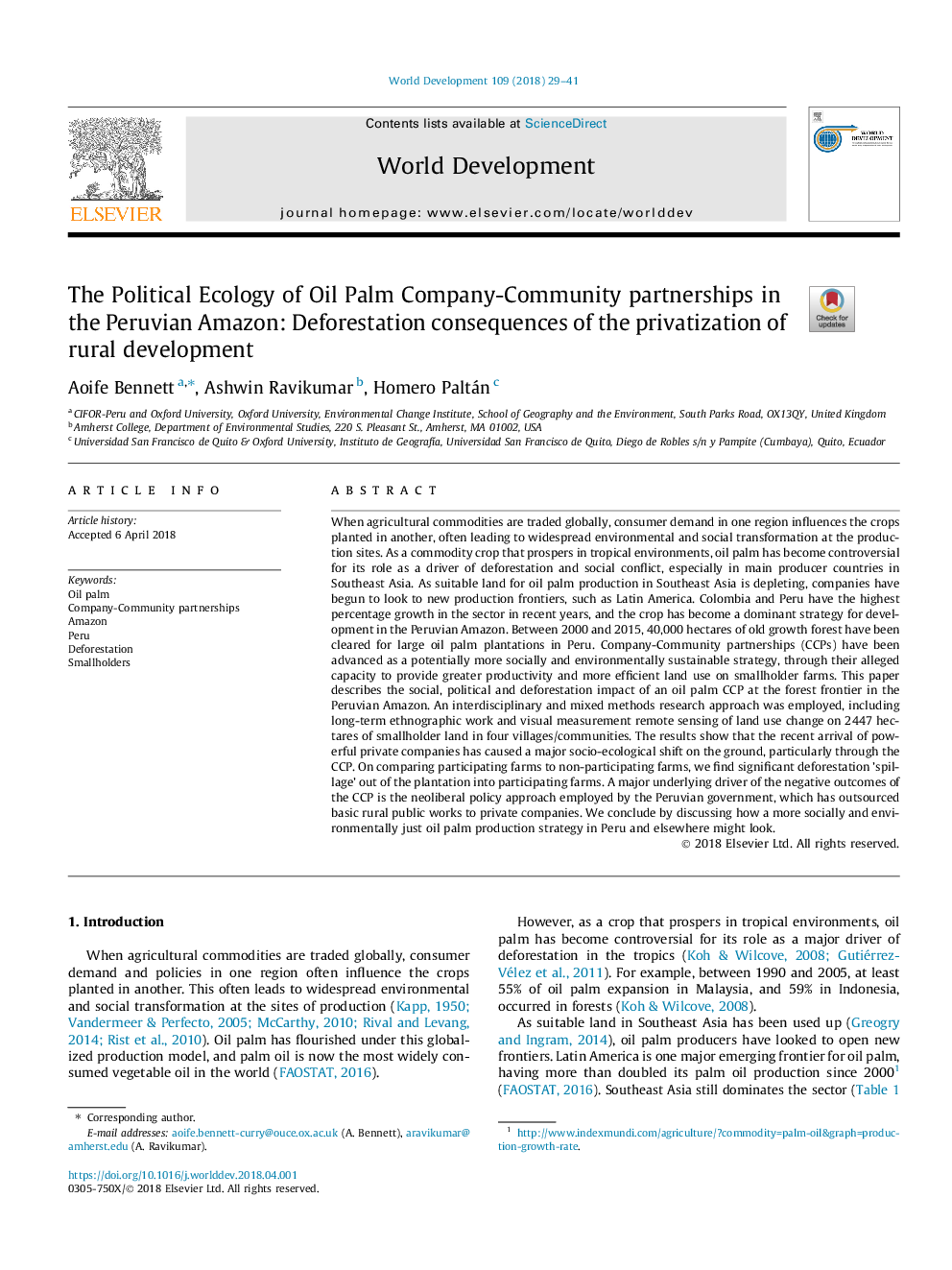| کد مقاله | کد نشریه | سال انتشار | مقاله انگلیسی | نسخه تمام متن |
|---|---|---|---|---|
| 7391523 | 1481109 | 2018 | 13 صفحه PDF | دانلود رایگان |
عنوان انگلیسی مقاله ISI
The Political Ecology of Oil Palm Company-Community partnerships in the Peruvian Amazon: Deforestation consequences of the privatization of rural development
ترجمه فارسی عنوان
ایدۀ سیاسی شرکت پالم شرکت پالم و جامعه در آمازون پرو: پیامدهای جنگلزدایی خصوصی سازی توسعه روستایی
دانلود مقاله + سفارش ترجمه
دانلود مقاله ISI انگلیسی
رایگان برای ایرانیان
کلمات کلیدی
روغن نخل، مشارکت شرکت-جامعه، آمازون، پرو، جنگل زدایی، سهامداران کوچک،
موضوعات مرتبط
علوم انسانی و اجتماعی
اقتصاد، اقتصادسنجی و امور مالی
اقتصاد و اقتصادسنجی
چکیده انگلیسی
When agricultural commodities are traded globally, consumer demand in one region influences the crops planted in another, often leading to widespread environmental and social transformation at the production sites. As a commodity crop that prospers in tropical environments, oil palm has become controversial for its role as a driver of deforestation and social conflict, especially in main producer countries in Southeast Asia. As suitable land for oil palm production in Southeast Asia is depleting, companies have begun to look to new production frontiers, such as Latin America. Colombia and Peru have the highest percentage growth in the sector in recent years, and the crop has become a dominant strategy for development in the Peruvian Amazon. Between 2000 and 2015, 40,000 hectares of old growth forest have been cleared for large oil palm plantations in Peru. Company-Community partnerships (CCPs) have been advanced as a potentially more socially and environmentally sustainable strategy, through their alleged capacity to provide greater productivity and more efficient land use on smallholder farms. This paper describes the social, political and deforestation impact of an oil palm CCP at the forest frontier in the Peruvian Amazon. An interdisciplinary and mixed methods research approach was employed, including long-term ethnographic work and visual measurement remote sensing of land use change on 2447 hectares of smallholder land in four villages/communities. The results show that the recent arrival of powerful private companies has caused a major socio-ecological shift on the ground, particularly through the CCP. On comparing participating farms to non-participating farms, we find significant deforestation 'spillage' out of the plantation into participating farms. A major underlying driver of the negative outcomes of the CCP is the neoliberal policy approach employed by the Peruvian government, which has outsourced basic rural public works to private companies. We conclude by discussing how a more socially and environmentally just oil palm production strategy in Peru and elsewhere might look.
ناشر
Database: Elsevier - ScienceDirect (ساینس دایرکت)
Journal: World Development - Volume 109, September 2018, Pages 29-41
Journal: World Development - Volume 109, September 2018, Pages 29-41
نویسندگان
Aoife Bennett, Ashwin Ravikumar, Homero Paltán,
